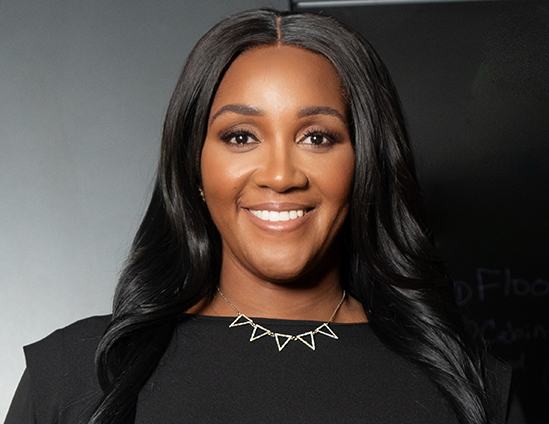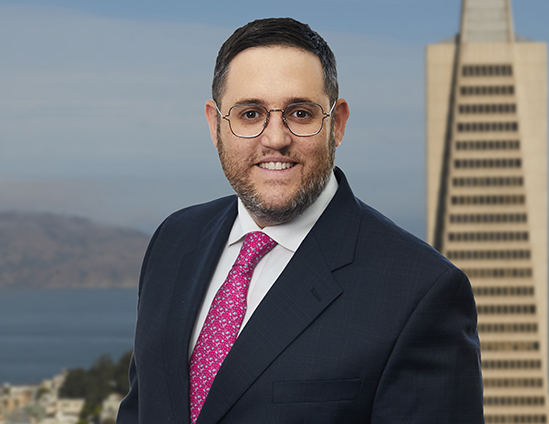By Alison Anderson, Kenya Davis, and Joshua Stein
On February 5, 2025, the newly confirmed Attorney General, Pam Bondi, issued a memo titled “Ending Illegal DEI and DEIA Discrimination and Preferences” (“Bondi DEI Memo”) directing the U.S. Department of Justice’s Civil Rights Division to “investigate, eliminate, and penalize illegal DEI and DEIA preferences, mandates, policies, programs, and activities in the private sector and in educational institutions that receive federal funds.” In doing so, she followed the lead of attorneys general in several red states, such as Texas, where actions have been taken against companies like Costco, targeting DEI programs through investigative and enforcement measures.
Attorney General Bondi’s directive comes on the heels of President Trump’s Executive Order 14173, declaring that DEI programs “violate the text and spirit of our longstanding Federal civil-rights laws” under the U.S. Supreme Court’s recent ruling in Students for Fair Admissions, Inc. v. President & Fellows of Harvard College. In that decision, the court found that the use of racial identity in an admissions decision violates the Fourteenth Amendment (which applies to government and public schools) and Title VI of the Civil Rights Act of 1964 (which applies to any private entity receiving federal funds), while allowing preferences for legacy, athletics, and military affiliation to remain in place.
Attorney General Bondi’s Directive to Eliminate DEI
Attorney General Bondi’s DEI Memo starts by requiring the Civil Rights Division, along with the Office of Legal Policy, to submit a report to the Associate Attorney General detailing (1) key sectors of concern within the department’s jurisdiction (2) the most egregious and discriminatory DEI and DEIA practices within each sector (3) a plan to deter the use of DEI and DEIA programs, including proposals for criminal and civil investigations (4) identifying additional litigation activities and (5) identify other strategies to end illegal DEI and DEIA discrimination and preferences.
(1) Key Sectors of Concern
While the Bondi DEI Memo does not clearly define “key sectors of concern,” there are a few ways this may be interpreted. The DOJ may look to industries that have significant and well-established DEI and DEIA programs, such as banking and financial services, biotech and pharmaceuticals, engineering and manufacturing, clothing, shoes, and sports, healthcare, IT, media and advertising, retail and wholesale, and energy (Forbes list of America’s Best Employers For Diversity 2024).
Alternatively, the DOJ may target industries receiving significant amounts of federal funding through contracts, vouchers, reimbursements, and programs, such as healthcare, education, and government contracting.
(2) Most Egregious DEI and DEIA Programs
This likely takes aim at companies with strong positions regarding their DEI and DEIA programs, such as Costco, which appears to be an early target. Recently, according to a January 28, 2025, Newsweek article, attorneys general from 19 states put Costco “on notice” over its DEI programs, alleging they advance “unlawful discrimination.” In response, the Costco Board of Directors, in a Notice of Annual Meeting of Shareholders, unanimously rejected a shareholder proposal requesting a report on “the risks of [Costco] maintaining its current DEI (including “People & Communities”) roles, policies and goals.” The Costco board noted that the shareholder who made the proposal has a “broader agenda of not reducing risk for the Company, but abolition of diversity initiatives,” and then unequivocally doubled down on the legality and organizational benefits of its DEI programs:
Our success at Costco Wholesale has been built on service to our critical stakeholders: employees, members, and suppliers. Our efforts around diversity, equity and inclusion follow our code of ethics:
For our employees, these efforts are built around inclusion – having all of our employees feel valued and respected. Our efforts at diversity, equity and inclusion remind and reinforce with everyone at our Company the importance of creating opportunities for all. We believe that these efforts enhance our capacity to attract and retain employees who will help our business succeed. . . .
We welcome members from all walks of life and backgrounds. As our membership diversifies, we believe that serving it with a diverse group of employees enhances satisfaction.
Costco is likely to continue to face scrutiny for its DEI initiatives and pressure from political activist shareholders. Other companies with DEI programs will likely face similar shareholder proposals, and the DOJ, SEC, and state attorneys general may be reviewing those responses, as well.
Other companies that have made attempts to have their workforce and leadership reflect the diverse customer base they serve may similarly find themselves in the crosshairs of a DOJ or state attorney general investigation. Further, any company that donates to organizations such as HBCUs, affinity groups, or scholarship funds for underrepresented or marginalized groups may also be at risk. Under the Bondi DEI Memo, DOJ will scrutinize companies that continue to fully back their DEI and DEIA programs.
(3) Plan to deter DEI and DEIA Programs
In requiring “a plan to deter the use of DEI and DEIA programs,” the attorney general calls for both civil and criminal proposals. While most of the Civil Rights Division’s work is in civil enforcement, there is a section dedicated to criminal enforcement, which, according to the Department of Justice website, has historically prosecuted law enforcement misconduct, hate crimes, and human trafficking. Under the Bondi DEI memo, the Criminal Section is directed to evaluate DEI and DEIA programs as the basis for criminal investigations into alleged violations of federal civil rights laws. It is highly likely that these investigations will target both corporations and high-level corporate executives, akin to what was suggested in Attorney General Sally Yates’ 2015 memo titled, “Individual Accountability for Corporate Wrongdoing.” However, given that the Criminal Section does not conduct a significant number of corporate investigations, it will likely partner with another DOJ component, such as the other Civil Rights Division sections, the DOJ Civil Division, the DOJ Criminal Division, or local U.S. attorney’s offices.
(4) Identify Litigation Activities
In asking the Civil Rights Division to identify “[a]dditional potential litigation activities,” the Bondi DEI Memo identifies, as examples, “interventions in pending cases, statement of interest submissions, and amicus brief submissions.” Thus, the DOJ is indicating that it will seek to get involved in other litigation matters, including private litigation, that impact or implicate DEI and DEIA programs.
Further, Attorney General Bondi requests the identification of regulatory actions and sub-regulatory guidance, which may lead to industry regulators bringing actions and issuing sub-regulatory guidance regarding DEI and DEIA programs.
(5) Identify Other Strategies to End Illegal DEI and DEIA Programs
Finally, the Bondi DEI Memo includes a catchall request for Civil Rights Division staff to identify any other strategies to end “illegal” DEI and DEIA “discrimination and preferences” to “comply with all federal civil rights laws.”
Considerations for Companies and Educational Institutions with DEI Programs
Can corporate violations of federal civil rights laws be criminal?
Numerous federal civil rights laws provide for criminal liability under 18 U.S.C., but most target a conduct at a particular place, such as the Freedom of Access to Clinic Entrances Act, which regulates conduct at reproductive health care facilities. Others, like the Church Arson Prevention Act, provide enhancements for conduct that would be independently criminal (U.S. Dep’t of Justice Civil Rights Division, Statutes Enforced by the Criminal Section).
A few such statutes are substantially broader in their potential reach. For example, Section 241 criminalizes conspiracy to “injure, oppress, threaten, or intimidate any person in any State, Territory, Commonwealth, Possession, or District in the free exercise or enjoyment of any right or privilege secured to him by the Constitution or laws of the United States.” Section 242 criminalizes actions “under color of [] law” that result in “deprivation of any rights, privileges, or immunities secured or protected by the Constitution or laws of the United States,” or disparate “punishments, pains, or penalties.” Both laws focus on serious violations, with enhanced penalties for cases involving bodily injury or death. However, Section 242's “color of law” requirement limits its application to government actors or those working closely with them.
Nevertheless, the new administration appears poised to broadly construe terms like “oppress” in Section 241 or the “rights or privileges” protected under Section 242 to target companies with DEI programs — an approach that goes against the text, history, and tradition behind these statutes. It is a novel approach, untested in the courts, and likely to divide the judiciary along political fault lines.
This will likely result in the DOJ pursuing civil enforcement at the outset with potential criminal investigations lurking in the background. Regardless of how this turns out, the Trump administration and Attorney General Bondi may be, unintentionally, creating a mechanism for the department to hold corporations criminally responsible for civil rights violations, which could pave the way for future administrations to do the same but with different priorities.
What options are available to an organization if targeted by the DOJ?
Companies and educational institutions with robust DEI policies are likely to continue facing scrutiny from this administration’s DOJ and red-state attorneys general. Fortunately, those that are targeted have options for challenging or forestalling criminal and civil investigations or enforcement actions that are based on the Bondi DEI Memo or similar policies.
- Challenge Subpoenas: If a corporation believes that a subpoena issued by the DOJ lacks a legal basis, is overly broad, or not relevant to an underlying investigation, it can challenge it. The mechanism for challenging a subpoena will depend on what authority or procedure the DOJ uses to obtain it.
- Challenge Civil Investigative Demands (CIDs): CIDs are typically used in antitrust and False Claims Act (FCA) investigations, but the DOJ may attempt to use them in this context if they are relying on a theory that the corporation’s DEI or DEIA program resulted in false statements being made to the government to obtain government funds. Companies within the healthcare and government contracting sectors may be particularly vulnerable to this approach because they are significant recipients of government funds, providers of government programs, and executors of government contracts. However, corporations can challenge such CIDs as not authorized under the relevant statutes or on the grounds of overbreadth or irrelevance.
- Pre-Enforcement Declaratory or Injunctive Relief: Companies can proactively seek injunctive or declaratory relief directly challenging DOJ policy memoranda or interpretations of existing statutes. Such lawsuits would seek to prove that the legal theories or interpretations underpinning anti-DEI investigations or enforcement actions are not viable as a matter of law. However, companies that are not singled out or targeted for investigations or enforcement actions may have difficulty showing that they face injury sufficient to establish legal standing to bring a pre-enforcement challenge.
- Assert a First Amendment Claim or Defense: Corporations can argue that DEI programs are a form of corporate speech and association protected under the First Amendment. “Chilling effects” on First Amendment-protected speech of conduct have long been recognized as a basis to bring challenges to government policies and guidance. This defense can be used to challenge the constitutionality of Executive Order 14173 and the DOJ’s enforcement actions.
- Challenges under Equal Protection Clause: As in the first Trump administration, officials have often singled out companies or individuals for disparate enforcement or treatment. Companies can bring “class-of-one” claims if they are singled out for disparate treatment where there is no rational basis for such treatment. Likewise, companies can also argue that Executive Order 14173 and any DOJ guidance following from the Bondi DEI Memo are inconsistent with (and indeed undermine) the protections of the Fourteenth Amendment’s Equal Protection Clause.
- Challenges under Due Process Clauses: Companies can raise due process challenges to investigations or enforcement actions by the DOJ or state AGs under the Due Process Clauses of the Fifth and Fourteenth Amendments, respectively. Where investigations or enforcement actions appear pretextual or shirk procedural protections and established processes, they can likely be challenged on due process grounds.
- Challenges under Administrative Procedure Act (APA): Corporations can challenge the executive order and subsequent guidance or enforcement under the APA as actions that are arbitrary, capricious, an abuse of discretion, or otherwise not in accordance with law. APA claims are particularly effective for challenging guidance or rules that exceed statutory authority or are undertaken without adequate consideration.
- Raise a Bona Fide Occupational Qualification (BFOQ) Defense: Corporations can also argue that certain DEI practices are necessary for the operation of their businesses and do not constitute illegal discrimination because they are aimed at building a workforce that has the skills or experiences necessary to meet legitimate business needs. For instance, a retailer or airline that serves a large number of Spanish- or Mandarin-speaking customers can legitimately prioritize hiring of employees who speak Spanish or Mandarin Chinese at a native-speaker level.
What steps should a company take in anticipation of being targeted by the DOJ?
- Conduct an Internal Audit
Work with outside counsel to review your DEI policies, programs, and hiring practices for potential legal vulnerabilities and ensure compliance with Title VII of the Civil Rights Act. - Preserve and Organize Relevant Documents
Secure all records related to DEI and DEIA initiatives and ensure proper documentation to demonstrate your DEI and DEIA programs were designed to be inclusive and merit-based. - Assess Risks of Legal Exposure
Identify any potential high-risk policies, and if any exist, evaluate whether adjustments should be made. - Implement a Defense Strategy
Prepare clear legal justifications for DEI and DEIA programs, emphasizing business necessity, non-exclusivity, and alignment with Supreme Court precedent. Alongside attorneys and crisis communication teams, develop a strong narrative that emphasizes compliance, fairness, and voluntary participation in DEI programs. - Train Relevant Employees and Executives on DOJ Investigations
Educate key stakeholders on how to respond if DOJ investigators request interviews or issue subpoenas. Prepare HR and DEI officers to answer questions with clarity and consistency. - Engage with DOJ Strategically
If contacted by the DOJ, prepare to respond promptly and professionally, but do not volunteer unnecessary information. Negotiate the scope of the subpoena to ensure compliance without over-disclosing sensitive company data.
Conclusion
One thing is clear: If approached by the DOJ, corporations must contact a law firm that is aggressive, creative, strategic, and prepared to defend their DEI and DEIA programs.
In the meantime, corporations should identify compliance with federal civil rights laws as a priority and ensure that they have conducted the necessary analysis to show that their compliance programs include policies, procedures, and internal controls to meet federal civil rights laws requirements as interpreted by the courts.
Partner Valecia Battle and associates Izaak Earnhardt and Joshua Quaye contributed.


